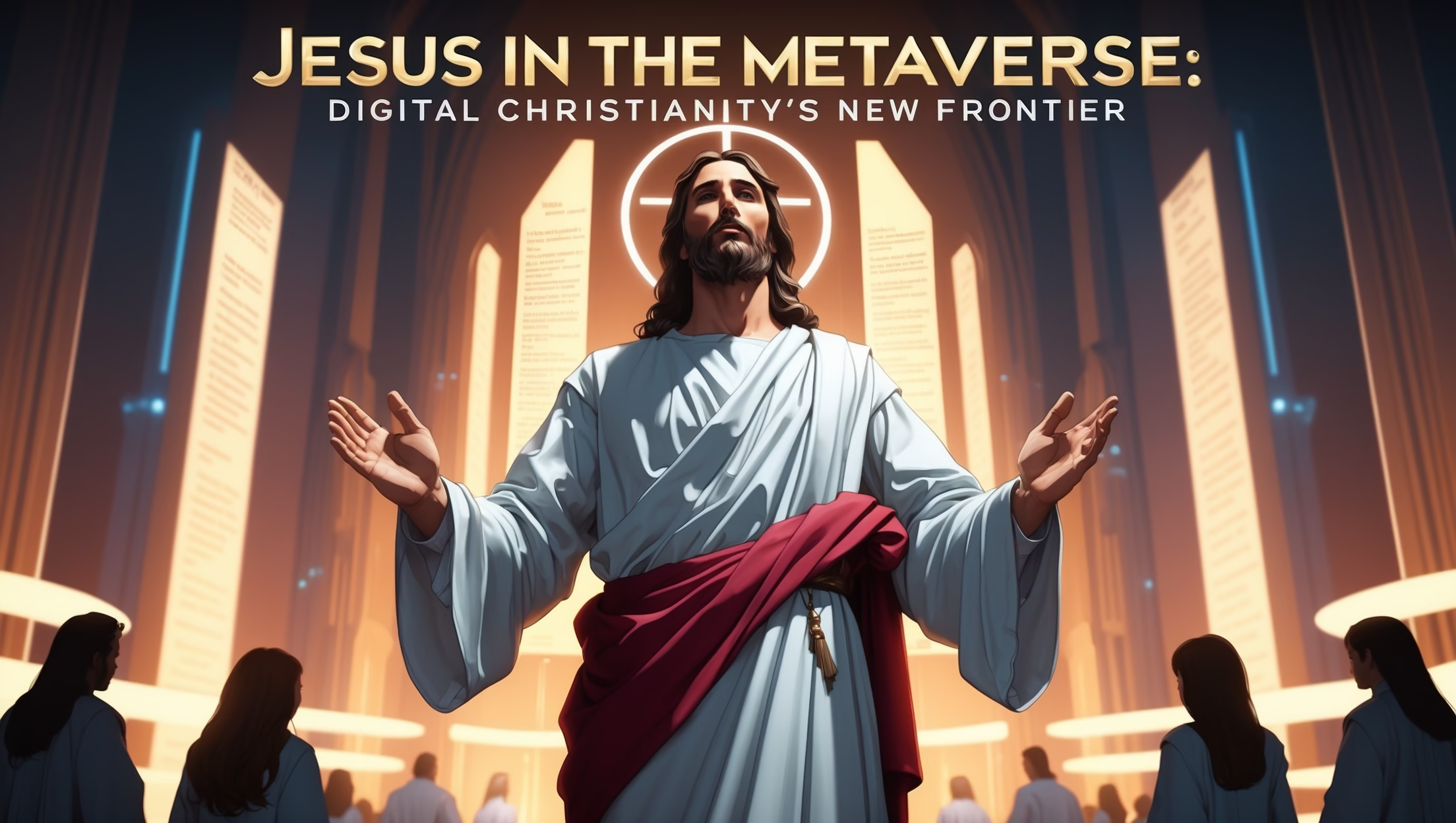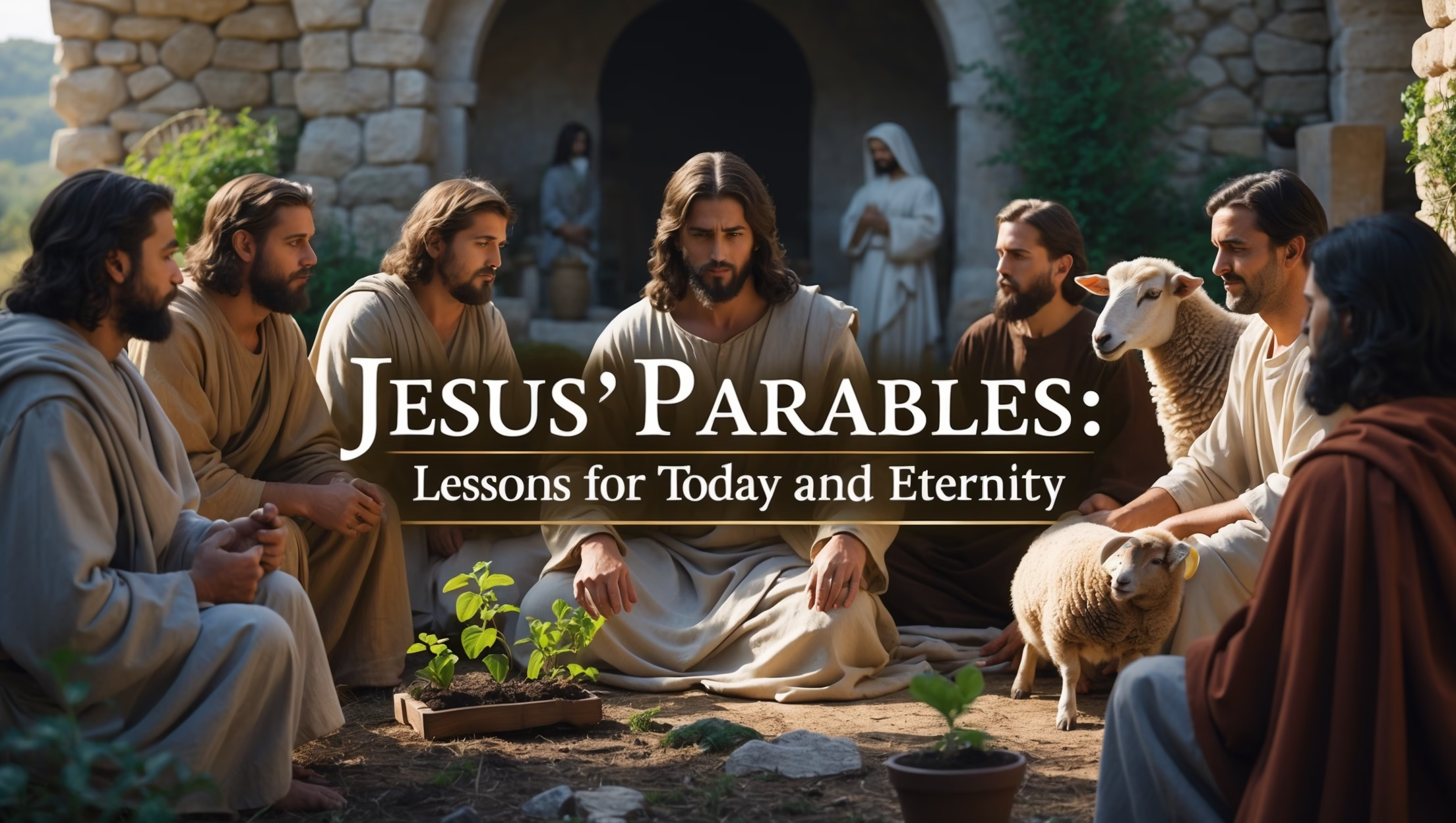When Virtual Reality Meets Ancient Sacraments
The story of Jesus has shaped human culture for over two millennia—through art, literature, music, and ritual. Today, His presence is extending into the digital realm, as virtual reality (VR), artificial intelligence (AI), and blockchain technologies transform how people worship, learn, and experience the sacred. From VR baptisms in Latin America to AI-powered confessionals and NFT-based communion, Christianity is entering a metaverse that promises both innovation and controversy.
This intersection of ancient faith and cutting-edge technology raises profound theological, ethical, and cultural questions. Can pixels and avatars convey the real presence of Christ? Can AI be a legitimate conduit for pastoral care? And what does it mean for the Church when sacraments are mediated by digital interfaces?

Current Implementations of Digital Christianity
VR Baptisms
In 2022, a church in Honduras made international headlines by performing virtual baptisms using Meta Quest headsets. Participants entered immersive environments replicating rivers or church fonts, while an ordained minister performed the ritual remotely.
Proponents argue that VR enables accessibility: people who are homebound, imprisoned, or geographically isolated can participate in sacraments they otherwise could not experience. Critics, however, question whether a ritual mediated by virtual space can convey the spiritual reality that traditional baptism embodies. The debate echoes centuries-old theological discussions about form, matter, and intention in sacramental theology.
AI Confessionals
Artificial intelligence has also entered sacred practice. In early 2023, several experimental ChatGPT-based “priest bots” allowed users to confess sins and receive counsel. While some participants reported meaningful reflection, the Vatican ultimately shut down these programs, citing concerns that AI lacks the conscience and authority to mediate forgiveness.
Yet this experiment highlights a growing tension: as technology evolves, believers seek pastoral guidance in spaces where human clergy are unavailable. AI cannot replace human empathy, but it can offer structured spiritual exercises, Scripture study, and even simulated dialogue, raising questions about what aspects of ministry are essential to human connection.
NFT Communion and Digital Tokens
Blockchain technology has also entered liturgical practice. In Singapore and other tech-forward congregations, NFTs representing bread and wine have been proposed as digital analogues to the Eucharist. Advocates suggest that these tokens allow global believers to participate symbolically in communion, especially in situations where physical elements are impossible to distribute.
The move is controversial. Critics argue that converting sacred elements into digital commodities risks commercializing the sacraments and undermining the theological principle of incarnation—that Christ’s presence is materially, not virtually, mediated. Supporters counter that NFTs could deepen engagement for tech-native congregants and provide educational frameworks for understanding the ritual.
Early Christian Parallels
Interestingly, digital Christianity is not entirely unprecedented. Early Christians worshipped in house churches, often in secret due to persecution, using domestic spaces as sacred sites. Catacomb art and frescoes functioned as visual theology, conveying stories of Christ and the martyrs to those unable to read.
In the same way, VR environments, online liturgies, and interactive digital icons serve as new mediums for teaching, worship, and community-building. Just as early Christians adapted physical spaces to convey sacred meaning, contemporary believers are experimenting with virtual spaces to make spiritual experience accessible, safe, and engaging.
Ethical and Theological Questions
Sacramental Validity
Central to debates about digital Christianity is the question: can pixels convey real presence? In traditional sacramental theology, the physical elements (water, bread, wine) and human mediation (ordained clergy) are essential. Digitizing these elements challenges centuries of theological consensus and forces the Church to reconsider what constitutes sacramental efficacy.
Pastoral Authority and AI
AI bots can provide instruction, simulate dialogue, and even offer scripted comfort. But forgiveness and guidance in sacramental contexts rely on moral discernment, which AI cannot truly exercise. Ethical questions emerge about trust, accountability, and privacy when human confessions are routed through digital intermediaries.
Apocalyptic Imagery and Technology
Some critics draw uneasy parallels between Revelation 13’s imagery—the mark of the beast—and immersive digital devices such as VR headsets or blockchain authentication. While largely symbolic, these concerns underscore the anxieties inherent in blending human spirituality with omnipresent technology.
Cultural Implications
Access and Inclusion
Digital Christianity opens avenues for global participation. Individuals in remote areas, under authoritarian regimes, or with physical disabilities can engage in rites that were once geographically or socially restricted. This democratization mirrors Jesus’ ministry, which often crossed social and cultural boundaries.
Creativity and Imagination
Virtual worship spaces, gamified Bible experiences, and interactive liturgies also reflect human creativity in theological expression. Much like medieval cathedrals or Renaissance art, these digital environments allow aesthetic and pedagogical engagement with sacred stories, fostering immersion and reflection.
Challenges to Tradition
The Church now faces a tension between innovation and orthodoxy. Embracing digital platforms risks alienating traditionalists, but rejecting them entirely may leave younger generations disengaged. The challenge lies in discerning which elements of faith can be faithfully translated into digital form without compromising theological integrity.
The Future of Digital Faith
The metaverse is still in its infancy, but its trajectory suggests a profound reshaping of religious practice. Churches might one day host fully immersive worship services with avatars, AI-guided Bible study groups, and virtual pilgrimages to holy sites. The line between physical and digital sacred experience will blur, requiring ongoing theological reflection.
Ultimately, these experiments provoke a deeper question: what is essential to the Christian encounter with Jesus? Is it the physical elements, the human community, the intention of the heart, or some combination? The answer may define the future of digital Christianity and how faith communities navigate a technologically mediated world.
Conclusion
Jesus’ presence in the metaverse is emblematic of the Church’s enduring adaptability. From house churches to catacomb art, from Gregorian chants to NFTs and VR, the story of Christ continually finds new mediums for expression. Digital Christianity challenges believers to think critically about the nature of sacraments, pastoral authority, and communal worship.
Yet despite the radical innovation, the goal remains the same: to encounter the living Christ, cultivate faith, and extend His mission of love, compassion, and justice—even in pixels. In a world increasingly shaped by technology, the metaverse may be the next frontier where the eternal message of Jesus is heard, experienced, and enacted.










